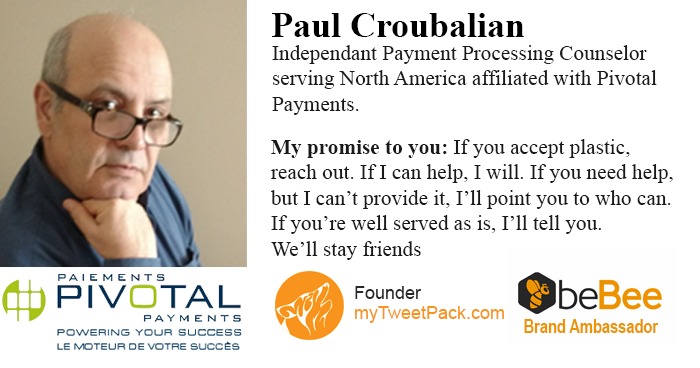How Anti-Fraud Measures Make You Guilty Until Proven Not

Yes, the burden of proof is on your shoulders, Mr(s). Merchant. That sucks, but it's true.
No, there's no real way to eliminate then completely short of luck. Fortunately, there are things you can do to lessen the impact.
Most often the chargeback is simple confusion. Often, it’s a technical glitch (rare) or human error(much more common). Sometimes (often!), it’s just a merchant dragging their feet to issue a credit. Sometimes, it’s a deliberate act by an unscrupulous cardholder (rarer than you may think). Online merchants who don’t use a confirmed delivery method are susceptible to stolen packages and “friendly fraud.”
Whatever the root cause, it is up to you, the merchant, to prove the legitimacy of the transaction. That takes up resources in both time and money. In the meantime, you don't have access to your funds, you are (at best) temporarily out of pocket for your cost of goods sold, and you have to devote additional fees and employee time to contest the freaking thing.
Your first act should be to answer, "Is it worth fighting?" It may not be. That's a business question only you can answer. Is it worth your while to fight a $20 chargeback knowing it will cost you $100 to do so? FYI: $100 is pretty cheap when you consider employee time on top of surcharges.
The Process
Chargebacks are a pain in the butt. If you don’t or can’t defend yourself you lose. . . PERIOD.
That’s the cold hard truth.
Many people think that a cardholder only has three months to contest a charge. No, that’s old news. A cardholder has a full 24 months from the statement date. This, like just about everything that pertains to credit card acceptance, varies with geography. Check yours.
The process takes from 6 weeks to 6 months. It looks like this:
- The cardholder files a complaint with the bank who issued their card.
- The bank checks whether the dispute is valid. If the bank finds the request invalid, the dispute is simply declined. The charge stands and a dispute processing fee may get added to the cardholder’s account. You, the merchant, are none the wiser. It’s like nothing happened.
- If the bank sees the complaint is possibly legitimate, it issues a provisional credit to the cardholder. The bank then tries to get its money back from the merchant’s bank.
- The merchant’s bank checks whether the chargeback is valid or not. They send the merchant a notification of a pending chargeback request.
- The merchant's bank then does some research on the validity of the chargeback claim. If they find the chargeback invalid, they decline it and inform the card-issuing bank.
- If the chargeback is possibly valid, the amount of the chargeback comes out of the merchant's account, and the merchant's bank notifies the merchant.
- If it was a processing error, a correction is made and the card-issuing bank re-presents for payment.
- If the cardholder complaint seems legitimate, the merchant will be asked to provide documentation to prove that the original charge was legitimate.
- If the documentation provided is okay, the claim for the chargeback is denied, the cardholder gets charged for the sale, and funds are returned to the merchant. If not, the chargeback becomes permanent.
- File this under strange but true. The story usually ends here, but not always. The cardholder or the issuing back can restart the process. I understand why the chargeback process exists. This re-chargeback shouldn't IMHO.
The problem lies in what constitutes “proof.” Online merchants have the toughest time with this. Does a signed delivery receipt count as proof?
Actually, no it doesn’t.
The merchant must prove that they actually delivered the product or service to the cardholder and it was in the condition the cardholder expected and that the cardholder was the one who asked for that product or service, and that that cardholder received the goods.
That isn’t easy to do.
The Consequences
The most obvious consequence is that you, the merchant, lost your money, product/service, and shipping costs if any. The consequences don’t end there.
There are chargeback surcharges and data retrieval fees tacked on to the initial amount. It isn’t unusual to have a surcharge of $25 and a retrieval fee of another $25 under normal circumstances. If the merchant gets labeled as “high-risk” those fees can easily double per occurrence.
If that isn’t bad enough, a merchant deemed high-risk may have a surcharge added to all their transactions, or even lose the ability to accept plastic at all! That is disastrous for most businesses.
Avoidance is the best strategy
We’ll talk about “friendly fraud” another time. That’s when a cardholder gets what they asked for when they asked for it but tries to scam themselves a freebie. That’s a very small percentage of chargebacks. Most chargebacks are customer service or customer satisfaction issues that should never reach the banks.
Yes, Mr. Merchant, many chargebacks are your fault. They are the direct results of your actions or inactions. They are largely under your control.
Yes, Mrs. Consumer, many chargebacks are your fault. They are the direct results of unreasonable expectations. They are largely under your control. Try talking to the Merchant before complaining to the bank.
Example 1: Me vs an unnamed hotel
I arrived at about 11 PM loaded with my two-suiter, a carry-on, my laptop bag, and a briefcase. I didn't wait for a bellhop. I entered the darkened room, tripped over a loose bit of carpeting and knocked over a lamp.
The score was Gravity 1, Lamp 0. . . The lamp broke, it broke bad.
I called the front desk and a very efficient young man came up. He apologized, asked if I was all right, glued down the carpet, replaced the lamp and took the broken one away.
He did all that with exemplary hotel-like efficiency and poise.
Three days later when I was checking out, my bill had a $500 charge added for “damages.” Seriously? I trip over their loose carpeting and I have to pay $500 for a crappy lamp?
The guy at the front desk was adamant that the charge was legitimate and that the hotel "didn’t tolerate guests with anger issues trashing rooms" (his exact words, BTW. I can almost see Trent Selbrede's face turning purple as he reads this. No, Trent this was not a Marriott. J. Willard would roll over in his grave.) No amount of reasoning made the guy budge. He refused my request to speak to someone in charge.
He did not display exemplary hotel-like efficiency, but he was poised.
I resisted smacking him upside the head. I felt that that action may support his "anger issues" thing.
I called my issuing bank and explained what happened. They wanted to process a chargeback for the full amount saying that it was an all-or-nothing deal. (That has since changed.) I told them to hold off until I could speak to someone in authority.
I reached the hotel manager the next day and explained the situation. I did not want to contest three nights’ stay, seven meals, and two pay-per-views, I just wanted the $500 damage charge removed. He agreed immediately and processed a credit on the spot.
A chargeback was avoided. The fact that it should never have existed in the first place is academic.
Example 2: Moron in Fine Dining
Okay, so maybe “moron” is too harsh a word. This particular fine dining restaurant is a client, so I may be biased. You be the judge. I was there when it happened and I think the guy was an ass.
Let’s understand that this is a high-end restaurant. Dinner for two without wine or cocktails will set you back $350-$600 easy. Patrons expect and get perfection delivered with kid gloves.
On the night in question, a guy a few tables away ordered an old, collectible bottle of wine priced at $1500. His waiter pointed out that old, rare bottles were not guaranteed. The wine list said the same, both as a conspicuous warning at the bottom and as a note in that wine’s description.
He said he understood.
The sommelier brought the bottle and repeated the warning. Mr. Moron said, “Just open the fucking bottle already.” I guess he was trying to impress his date/daughter/granddaughter. I'm not sure which she was.
The sommelier did as ordered. The guy bought a very pricey bottle of vinegar.
“I’m not paying for that crap!”
Nonplussed as sommeliers are apt to be, the sommelier calmly explained that he understood Mr. Moron’s reluctance. He excused himself to, “See what could be done.”
He returned a few minutes later with a proposal. The diner was plainly warned that the wine was not guaranteed yet ordered it anyway. In all fairness, the $1500 should be charged, but in an effort to alleviate an unfortunate situation, the restaurant would absorb $1100 and only charge him $400.
“There’s no way I’m paying a fucking dime for that fucking wine!”
In the chargeback procedure that followed, the restaurant supplied a copy of its wine list with the warnings highlighted. It also highlighted the actual price of the wine and referred to their attempt to solve the problem with the lower price even though they were within their rights to insist on the full $1500.
They won. The chargeback was reversed.
Example 3: My Turn at Being the Moron
Upon my return from a vacation, I found a charge from some numbered company in Canada. I was in Mexico when the transaction supposedly happened, so I contested the charge as fraudulent.
Oops! I had my car serviced a couple of weeks before leaving on vacation. In my defense, I didn't know who the numbered company was. Also, the transaction date was several weeks after the work was actually done.
My bank gave me the DBA for the numbered company. I think I blushed when I told them to forget the whole thing. I should have known better. Oh, well, you know what they say about the shoemaker's shoes.
Conclusion
Chargebacks are a fact of life. Avoid them if you can, be prepared to deal with them quickly when you can’t.
Process credits immediately. Process them at least as quickly as you process sales. No, I'm not kidding. When a credit takes too long, the consumer doubts they will ever get it. That's when they take it up with their bank. Once the chargeback process starts, the fees are charged, and its existence noted, even if you already processed the refund. Don't forget to train your employees to process credits fast! One client noticed that chargebacks increased every time he had a sales contest going. His staff wouldn't process credits.
Close out your sales daily. Charges appear on a statement based on the day the sale was reported to the processor, not on the day they occurred. It should be the same date or the next at worst. Delaying further than that simply incurs surcharges and dramatically increases the odds of a chargeback.
Make sure your DBA or friendly name appears on consumers'statements. Who the hell is 1234-5678 Quebec Inc (ex)? Tony's Garage is recognizable.
Keep records for at least 2 years, but 5 is better.
Insist on extra confirmations when a sale sounds “fishy.” If your internal alarms go off, there’s a reason for them even if you can’t see what it is. Trust your gut. Teach your staff to trust their guts too.
Verify that shipping addresses match the credit card, and don't ship if they don't match!
Be wary of "strange" sales. This is a corollary of the "trust your gut thing."
Use a signature-required shipping service. That won't guarantee you a win, but it will help. Look at it as a business case. Determine if the additional shipping cost covers the chargeback potential. You can't control "friendly fraud," package theft, and server glitches. You can control your internal processes. Stack the odds in your favor.
Work with a processor that works with you! Use one that has a Chargeback Assistance Team for its merchants.
You can't really eliminate chargebacks. You can only avoid them.I have one client who hadn't had a chargeback in 20 years. He just got one. It all boils down to the mathematics of probability. If the possibility exists for something to happen, it eventually will.
Be prepared.
Cheers

""
Articles from Paul "Pablo" Croubalian
View blog
Someone once told me the most common element on Earth is iron (symbol: Fe). I don’t think so. I thin ...

I think my re-entry · into the dating world would make a good sitcom. Or maybe it would make a bette ...

Many of you · are curious about what happened · between · Coco and I. I'm somewhat surprised, frankl ...
Related professionals
You may be interested in these jobs
-
retail store supervisor
Found in: Talent CA 2 C2 - 4 days ago
BEST ELECTRICAL SUPPLY LTD. Edmonton, CanadaEducation: · Expérience: · Education · Secondary (high) school graduation certificate · Tasks · Assign sales workers to duties · Hire and train or arrange for training of staff · Authorize return of merchandise · Establish work schedules · Prepare reports on sales volumes, merc ...
-
Accountant, Corporate Tax
Found in: Talent CA C2 - 4 days ago
MNP Toronto, Canada Full timeJob Details · Description · Inspirational, innovative and entrepreneurial - this is how we describe our empowered teams. Combine your passion with purpose and join a culture that is thriving in the face of change. · Make an impact with our U.S. Corporate Tax team as an Account ...
-

Whatever Whenever Agent
Found in: Talent CA C2 - 3 days ago
Marriott Toronto, CanadaAdditional Information At Your Service Agent, Full Time · Job Number · Job Category Rooms & Guest Services Operations · Location W Toronto, 90 Bloor Street East, Toronto, ONT, Canada VIEW ON MAP · Schedule Full-Time · Located Remotely? N · Relocation? N · Position Type Non-Manag ...



Comments
Paul "Pablo" Croubalian
6 years ago #8
Thanks Ken Boddie. That's just one of the ways merchants shoot themselves in the foot
Paul "Pablo" Croubalian
6 years ago #7
Yes, it's a torn in the side, which is the polite way of saying pain in the ass, for both consumers and merchants! Thanks for the comment, Bill Stankiewicz, \ud83d\udc1d Brand Ambassador
Bill Stankiewicz
6 years ago #6
Ken Boddie
6 years ago #5
Paul "Pablo" Croubalian
6 years ago #4
Randall Burns
6 years ago #3
Paul "Pablo" Croubalian
6 years ago #2
Gert Scholtz
6 years ago #1